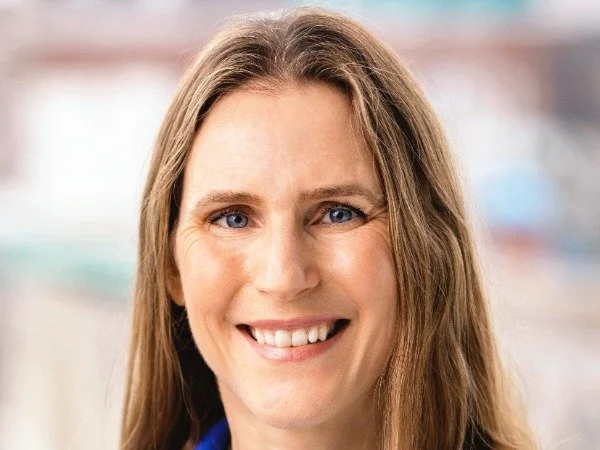Séverine Autesserre : building peace from the ground up
Séverine Autesserre is an award winning peacebuilder, researcher, and author. She is now Professor and Chair of Political Science at Barnard College, Columbia University. She is additionally the author of three books: The Trouble with the Congo, Peaceland, and her newest release, The Frontlines of Peace. In this interview, Autesserre describes her educational background and trajectory to becoming a prevalent researcher in the field of international aid.
This article was written by Dana DeMartino, student in the dual degree program between Sciences Po and Columbia University, and intern at the Sciences Po American Foundation.
Autesserre was interested in politics, which brought her to Sciences Po for its reputation within international relations and world affairs. Auttesserre loved her coursework at Sciences Po. “I felt privileged that I could study these topics that I was passionate about… I was in awe about everything.” One of her favorite classes about geopolitics was Grandes Lignes de Partage du Monde Contemporain, taught by Bernard Manin. “I absolutely loved it. I think it is what made me want to do the work I do now, and complete my Ph.D.” She also deepened her English skills while at Sciences Po, which she now uses in her professional career to partake in conferences and debates.
Autesserre graduated from Sciences Po in 1999, with a Masters of Political and Social Sciences, and a specialization in International Relations. After her time at Sciences Po, she was sent to a prestigious exchange with Columbia University, while on a Fulbright Scholarship. She received a Masters of International Affairs from Columbia University in 2000. During her studies, she completed multiple internships. While working with Voice of Soweto (a community radio station) in South Africa, she witnessed the destruction of an illegal township in the outskirts of Johannesburg. The objectivity of reporting on this destruction bothered Autesserre—so she decided in that moment to become directly involved in the world.
Thoughts on the aid industry
She shifted gears to humanitarian aid and peacebuilding, working around the globe. She spent time in Kosovo with Doctors of the World, and then worked in the Democratic Republic of Congo with Doctors without Borders in 2001, at the height of the Second Congo War. As she describes in The Frontlines of Peace, it was in Congo that Autesserre first witnessed holes within the aid industry, which is a theme she continued to see in various aid organizations in Afghanistan and other conflict situations.
Auttesserre continued to work part-time with aid organizations as she completed her Ph.D. dissertation about post-conflict settlement in the Democratic Republic of Congo and the problems with peace-building. She received her Ph.D. from NYU in Political Science in 2006, and decided her best avenue for supporting humanitarian aid was to continue producing research and publications. She is now teaching about the issues of top-down peacekeeping and international aid as a Professor and Department Chair of Political Science at Barnard College, Columbia University.
“When I started working as a humanitarian aid worker, there were a lot of things that shocked me… We don’t understand anything about the places we provide aid to. Sometimes we do more harm than good.”
Autesserre credits Sciences Po with the foundations she needed to understand the issues in the world she now addresses with her research. “I needed to understand economics, international relations, public speaking… At Sciences Po I learned that I could do it. I had professors who noticed me and believed in me. They though I had ideas and skills that mattered, and that gave me the confidence to keep going,” she says.
“Peace does not require billions of dollars in aid”
When asked what exactly was so shocking about her time with aid organizations, Autesserre sighed. “When I started working as a humanitarian aid worker, there were a lot of things that shocked me… We don’t understand anything about the places we provide aid to. Sometimes we do more harm than good. There is a lot of discrimination against the people we intend to help, and racism and sexism. These issues do not fit into the image I had of these organizations.”
In The Trouble with the Congo: Local Violence and the Failure of International Peacebuilding, Autesserre describes why we do not understand enough about the countries we intervene in. Her second book, Peaceland: Conflict Resolution and the Everyday Politics of International Intervention, is about how the good intentions of humanitarian aid can morph into problematic interventions. Her latest book, The Frontlines of Peace, goes on to suggest grass-roots and bottom up peacebuilding as a solution to these issues in the aid industry. She highlights the individuals and communities who have found ways to effectively combat war and build peace across the world. “Peace does not require billions of dollars in aid or massive internationals interventions. It involves giving power to ordinary citizens,” she says.
Autesserre is currently working on the French translation of The Frontlines of Peace in order to spread her important message to a larger audience.
This article is part of a series of portraits published in partnership with the Sciences Po American Foundation to show the diversity of Alumni careers throughout the world and especially in the US.




